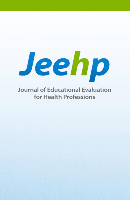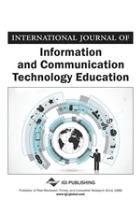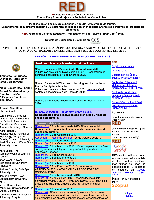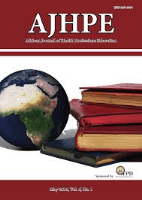
Journal of Educational Evaluation for Health Professions
Scope & Guideline
Innovating assessment practices for future health leaders.
Introduction
Aims and Scopes
- Educational Assessment and Evaluation:
The journal emphasizes research on the assessment and evaluation of educational programs in health professions, including studies on examination methodologies, competency assessments, and the effectiveness of various evaluation tools. - Innovative Educational Practices:
It highlights innovative educational practices such as simulation-based learning, online education, and the integration of technology in teaching, with a focus on improving learner outcomes in health professions. - Interprofessional Education:
The journal explores themes related to interprofessional education and collaborative practice, promoting studies that investigate how different health professions can learn from and with each other. - Impact of Technology in Education:
Research focusing on the role of technology, including artificial intelligence and virtual reality, in enhancing educational practices and assessments within health professions education is a critical area of focus. - Cultural Competence and Diversity in Education:
The journal also addresses issues of cultural competence and diversity in health education, investigating how these factors influence learning and patient care. - Methodological Rigor in Health Education Research:
There is a consistent emphasis on methodological rigor in studies published, encouraging the use of robust research designs and analytical techniques to ensure the validity and reliability of findings.
Trending and Emerging
- Artificial Intelligence in Education:
There is a notable increase in research exploring the application of artificial intelligence, particularly generative AI tools like ChatGPT, in educational settings, reflecting a growing interest in how these technologies can enhance learning and assessment. - Simulation-Based Learning:
The trend towards immersive and simulation-based learning is gaining momentum, as evidenced by multiple systematic reviews and studies focusing on its effectiveness in preparing health professionals. - Impact of COVID-19 on Education:
Research addressing the impact of the COVID-19 pandemic on educational practices, particularly the transition to online learning and its implications for student performance, has become a significant theme in recent publications. - Interprofessional Collaboration:
There is an increasing focus on interprofessional collaboration in health education, with studies investigating how collaborative learning experiences can enhance competencies among health professionals. - Diversity and Cultural Competence:
Emerging themes include diversity and cultural competence in health education, emphasizing the importance of these factors in shaping effective healthcare delivery and education.
Declining or Waning
- Traditional Lecture-Based Teaching:
Research focusing on traditional lecture-based teaching methods has decreased, likely as educational institutions increasingly adopt active learning and technology-enhanced approaches. - Homogeneous Curriculum Designs:
There seems to be a waning interest in studies that emphasize homogeneous curriculum designs, as there is a growing recognition of the need for more personalized and diverse educational pathways. - Static Assessment Methods:
There is a noticeable decline in research centered around static assessment methods, with a shift towards dynamic and formative assessment strategies that are more reflective of real-world competencies. - Single-Dimensional Evaluation Metrics:
The focus on single-dimensional evaluation metrics for student performance is less prevalent, as more comprehensive and multidimensional evaluation frameworks are being favored. - Conventional Research Designs:
The journal has seen a reduction in the publication of studies utilizing conventional research designs, with a trend towards more innovative methodologies that address contemporary educational challenges.
Similar Journals

Advances in Medical Education and Practice
Transforming Medical Education for Tomorrow's PractitionersAdvances in Medical Education and Practice (ISSN: 1179-7258, E-ISSN: 1179-7258) is a prominent open-access journal, published by Dove Medical Press Ltd since 2010, with a specific focus on the evolving landscape of medical education and training. Based in the United Kingdom, this journal aims to disseminate high-quality research and innovative practices that enhance educational strategies in medical and health professions, providing a platform for scholars, educators, and practitioners to share advancements that influence curriculum development, teaching methodologies, and assessment techniques. With impressive rankings in Scopus, positioned in the top quartile of educational journals (Q2 in Education, Rank #517/1543), and a respectable impact in the 66th percentile, it is a vital resource for those invested in enhancing the quality of medical education worldwide. Researchers, professionals, and students will find valuable insights in its comprehensive collection of articles, ensuring they stay at the forefront of advancements in medical education.

Innoeduca-International Journal of Technology and Educational Innovation
Pioneering Research at the Intersection of Technology and EducationInnoeduca - International Journal of Technology and Educational Innovation, published by the esteemed Universidad de Málaga, stands at the forefront of the rapidly evolving intersection of technology and education. With an E-ISSN of 2444-2925, this open-access journal has proudly disseminated cutting-edge research and innovative practices in educational technology since 2015. It aims to empower researchers, educators, and policymakers by providing a platform for sharing knowledge, insights, and advancements that enhance the learning experience through technology. The journal covers a wide array of topics, including digital learning environments, instructional design, and the impact of emerging technologies on education. By offering free access to its articles, Innoeduca fosters a global dialogue among professionals and students alike, making a significant contribution to the field of education innovation and technology.

Studies in Educational Evaluation
Elevating standards in educational evaluation research.Studies in Educational Evaluation is a premier journal published by Elsevier, specializing in the critical evaluation of educational practices and policies. Established in 1975, this esteemed journal serves as a vital resource for researchers and practitioners engaged in the ever-evolving field of education. With its impressive Q1 ranking in the Education category and positioned at the 90th percentile among its peers in Scopus rankings, it reflects a high standard of scholarly excellence. The journal aims to disseminate innovative research that fosters deeper understanding and effective assessment frameworks within educational contexts, making it indispensable for educators, policymakers, and researchers alike. Although it currently does not offer open access, the insights found within its pages are crucial for driving improvements in educational evaluation methodologies globally. Located in the United Kingdom, and available for wide readership, Studies in Educational Evaluation is committed to pushing the boundaries of knowledge in education assessment through rigorous, peer-reviewed scholarship.

International Journal of Information and Communication Technology Education
Enhancing the classroom with pioneering technology solutions.International Journal of Information and Communication Technology Education (ISSN: 1550-1876, E-ISSN: 1550-1337), published by IGI Global, stands at the forefront of educational research, focusing on innovative uses of information and communication technologies in the educational landscape. With an impressive impact factor and consistently high rankings—the journal is positioned in the Q3 category for both Computer Science Applications and Education in the 2023 evaluations—this journal serves as a vital platform for scholarly contributions that aim to advance teaching methodologies and enhance learning experiences. Spanning from 2005 to 2024, it explores diverse topics in e-learning and technology-enhanced education, making it an essential resource for researchers, professionals, and students passionate about the intersection of technology and pedagogy. Though specifically not an open-access journal, the invaluable insights it offers foster knowledge dissemination and innovation in the field. Located in the United States, at 701 E Chocolate Ave, Hershey, PA, the journal remains committed to fostering a collaborative and transformative approach to learning in today's digitally-driven society.

Contemporary Educational Technology
Pioneering Solutions for Modern Learning EnvironmentsContemporary Educational Technology is a premier journal published by BASTAS PUBL LTD - UK, specializing in the dynamic intersection of educational practices and technological advancements. With an E-ISSN of 1309-517X, this journal serves as a vital resource for researchers, educators, and professionals keen to explore innovative solutions and methodologies in education. Ranked in the Q2 category for both Education and Management of Technology and Innovation in 2023, Contemporary Educational Technology boasts impressive Scopus ranks, standing at #187 out of 1543 in the Social Sciences Education field, reflecting its influence and contribution to contemporary research. Through its open-access approach, this journal facilitates the dissemination of knowledge, making cutting-edge research readily available to a global audience. By examining developments from 2018 through 2024, it aims to critically analyze and promote the integration of technology in educational contexts, thereby fostering improved learning outcomes and innovative teaching practices.

International Journal of Assessment Tools in Education
Empowering Educators with Cutting-Edge Assessment InsightsInternational Journal of Assessment Tools in Education is a pioneering scholarly publication dedicated to advancing the field of educational assessment through innovative tools and methodologies. Published by IZZET KARA and based out of the esteemed Pamukkale University in Turkey, this journal is committed to fostering academic discourse among researchers, educators, and policy makers. With an ISSN of 2148-7456, it aims to bridge the gap between assessment theory and practical application, ensuring that the latest insights in educational measurement can be readily accessed by professionals in the field. The journal promotes open access to its articles, enhancing visibility and facilitating the dissemination of knowledge. By publishing rigorous empirical studies, theoretical discussions, and practical reports, it plays an essential role in shaping best practices in educational assessment, making it an invaluable resource for anyone invested in improving educational outcomes.

RED-Revista de Educacion a Distancia
Advancing Distance Education Through Innovative ResearchRED-Revista de Educacion a Distancia is a premier open-access journal published by UNIV MURCIA in Spain, dedicated to advancing research in the fields of education and computer science applications. Since its inception in 2001, the journal has served as an essential platform for disseminating innovative research and practical applications of distance education methodologies. With an impressive impact factor and ranked in Q2 across both Computer Science Applications and Education categories as of 2023, RED is recognized for its significant contribution to the scholarly community, particularly within the Social Sciences and Engineering domains. Researchers and professionals are invited to explore cutting-edge studies that underpin pedagogical effectiveness and technological integration in educational settings. Based at the Edificio Pleiades Campus de Espinardo in Murcia, RED continues to foster an engaging dialogue among academics, providing insights that propel the field forward.

Journal of Computers in Education
Redefining Education with Groundbreaking Digital Solutions.The Journal of Computers in Education is a distinguished academic journal published by SPRINGER HEIDELBERG, dedicated to advancing the intersection of technology and pedagogy. With an ISSN of 2197-9987, this journal has established itself as a pivotal resource for researchers and educators alike since its inception in 2019, maintaining a strong focus on innovative applications of computer science within educational contexts. Ranked in the Q1 category in both Computer Science Applications and Education, the journal demonstrates a high impact in its field, holding a remarkable position within the top 1.5% of journals in social sciences (rank #20/1543) and top 5.5% in computer science applications (rank #45/817). The journal's scope encompasses a wide range of topics including but not limited to educational technologies, e-learning methodologies, and the effective integration of computers in teaching, making it an essential source for professionals and students who are keen to explore cutting-edge research and trends. Although access options vary, the journal's commitment to disseminating quality research continues to enrich the academic landscape in Germany and beyond, nurturing the synergies between education and technology.

Education Sciences
Connecting Research and Practice in Education SciencesEducation Sciences, published by MDPI, is a renowned open-access journal based in Switzerland, committed to disseminating groundbreaking research across a wide array of interdisciplinary fields related to education. Since its inception in 2011, the journal has fostered scholarly discourse, presenting peer-reviewed articles that contribute to the advancement of knowledge in crucial areas such as Computer Science Applications, Developmental and Educational Psychology, Physical Therapy, and Public Administration, achieving impressive rankings within Scopus, including 81st percentile in Education and 79th percentile in Physical Therapy. With a dedication to accessibility and inclusivity, Education Sciences promotes the free exchange of ideas and findings, ensuring that educators, researchers, and policy-makers can readily access innovative studies that inform practices and policies in education and health professions. As it converges towards 2024, this journal stands as a critical platform for anyone invested in understanding and enhancing educational practices globally.

African Journal of Health Professions Education
Advancing Knowledge, Enhancing CareAfrican Journal of Health Professions Education (ISSN: 2078-5127, E-ISSN: 2078-5127), published by HEALTH & MEDICAL PUBLISHING GROUP, is a premier open access journal dedicated to advancing the field of health professions education across Africa and beyond. Launched in 2009, this journal provides a platform for sharing innovative research, pedagogical practices, and policy developments that enhance educational methodologies in healthcare-related disciplines. With its commitment to accessibility, the journal facilitates the dissemination of knowledge to researchers, practitioners, and students alike, thereby contributing significantly to the improvement of health outcomes through effective education. The journal's scope encompasses various areas, including curriculum development, assessment strategies, and the integration of technology in health professions education, making it an invaluable resource for anyone engaged in health education research and practice.